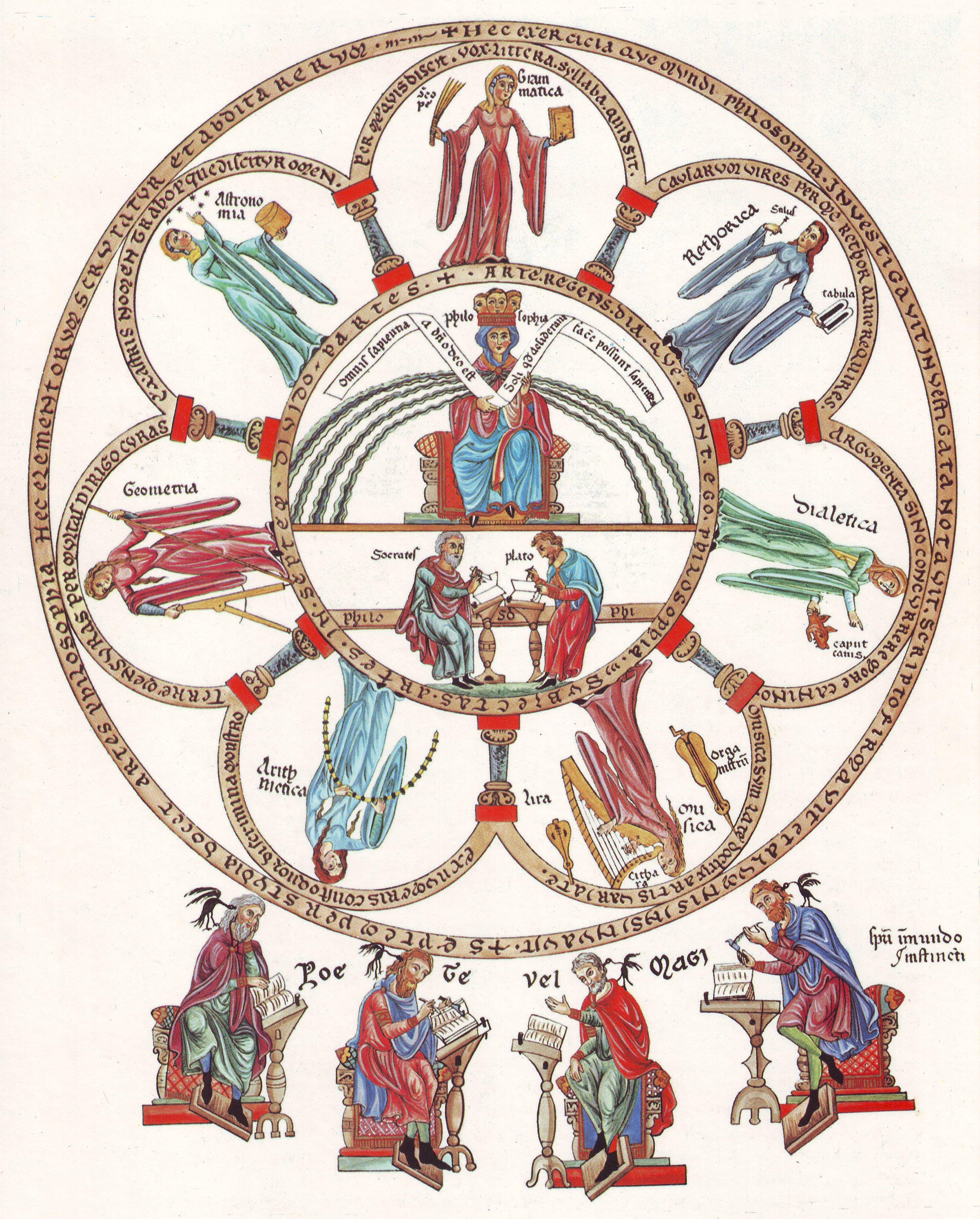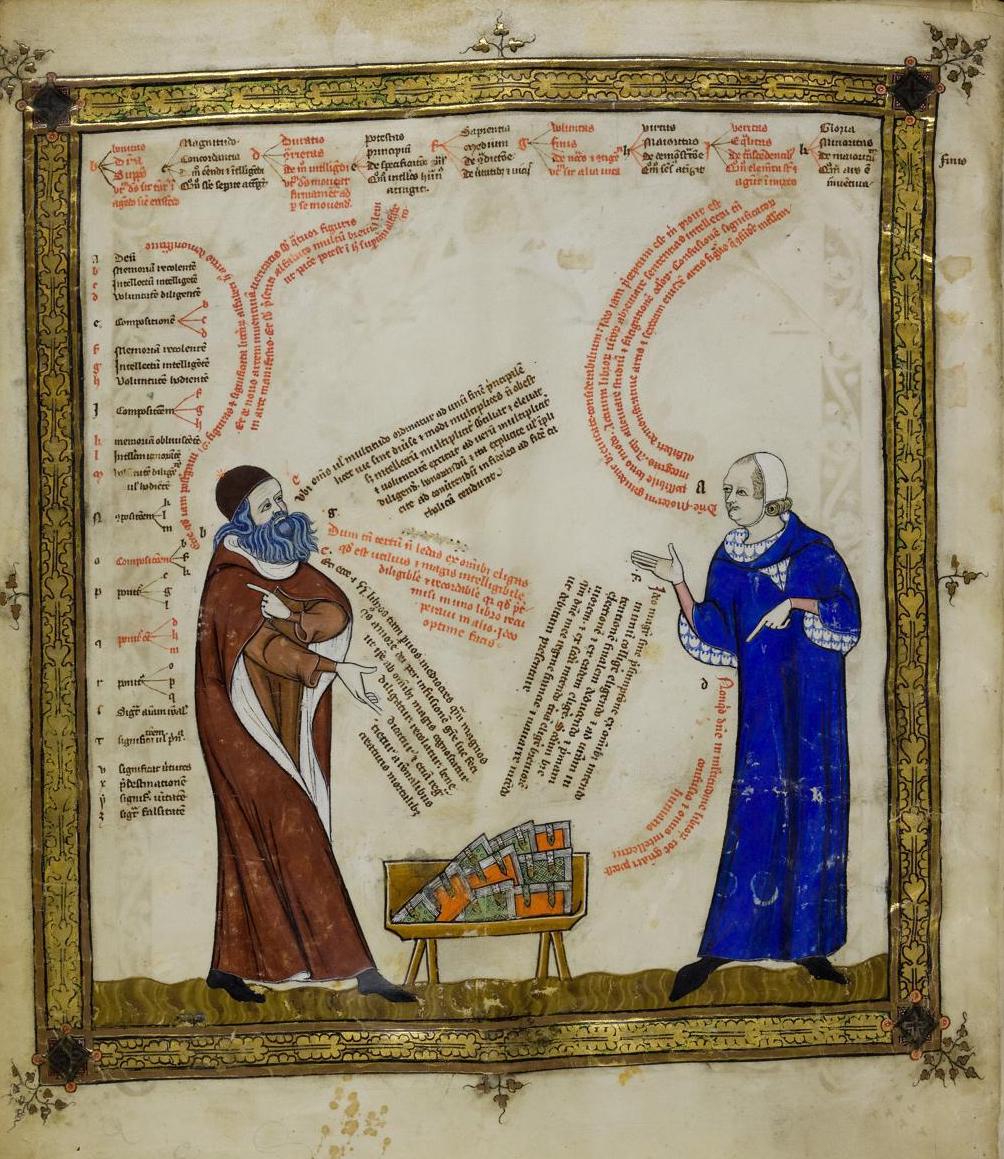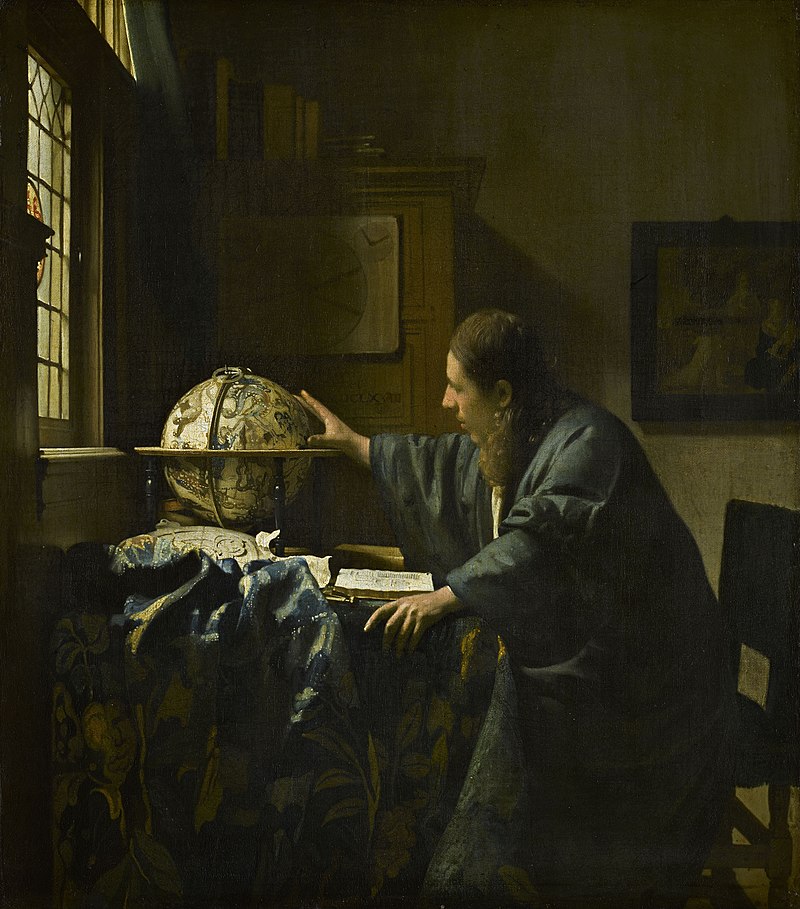
THE TRIVIUM
The Trivium (words) – Grammar + Rhetoric + Dialectics – is the traditional basis for education in the (alphabetic) West Sphere. It originated in Greece/Rome, was discussed by St. Augustine, and became a well-organized "curriculum" under Charlemagne and his companion Alcuin in the 8th-century. Along with the Quadrivium (numbers) – Arithmetic + Geometry + Astronomy + Music – it formed the basis of the Seven Liberal Arts. These arts were treated as an integral process, with each informing the others, often represented as a circle of knowledge. Marshall McLuhan wrote his 1943 Cambridge University PhD dissertation on "The Classical Trivium". "Modern" education, such as that promoted by John Dewey &al, fragmented education into "proficiencies" and "specialities" leading to today's dis-integrated educational landscape. The paradigm-shift from Electric/Televison to Digital opens up the opportunity to recover the Trivium and apply it to our future lives. Under Digital conditions, human sensibility is being reshaped and, once again, the Trivium can provide the structure informing our behaviors and attitudes.

Grammar (analogy) is the "heart" of the Trivium. It is the subconscious recognition of the structure of a technological environment. And it is far more than simple “sentence diagrams” (noting that Chinese doesn't actually have subject/predicate sentences, alerting us to the differences involved). Furthermore, treating technologies as “languages” (as Marshall McLuhan did in his 1956 essay, “The New Languages”), we are unavoidably caught in a matrix of grammars – with fundamental impact on how we live our lives. Our interaction with these grammars shapes our behaviors and attitudes, imbuing us with our subconscious biases, and providing us with the “premises” for our arguments, which we often resist changing.
GRAMMAR

RHETORIC
Rhetoric could be considered the “crossroads” for the Trivium. This is where the action lies. “Persuasion,” like so many terms that attempt to distill/bottle human activity, doesn't really tell us all we want to know. Humans are social creatures and the societies we build are driven by rhetoric. Actors – of all kinds – are rhetoricians. To be effective in the world, to have agency, we must study and, ultimately, master rhetoric. For some, this mastery facilitates manipulation; for others it allows the truth to be told. Learning how to tell the difference is among humanity's greatest challenge.

DIALECTICS
Dialectics (logic) is the "head" of the Trivum – if Grammar is the "heart" and Rhetoric where they converge. Instead of describing the world as it is – the job of grammar – it points towards what could be if we alter the underlying structures. If grammar refers to the reality of “nature,” then dialectics opens the door for the potentially “unnatural.” As a result, dialectics is often associated with “progress” or even radical change (as in the Marxian use of the term). McLuhan's PhD thesis, titled “The Classical Trivium,” is an account of the tension between Grammar and Dialectics – one which cannot be resolved, although the balance shifts. The Print paradigm drove Logic to overpower Analogy. Today's Digital paradigm heightens the urgency of this grammar/dialectics tension, since humanity's future aligns with the outcome.